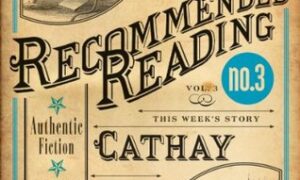 All Fall Down by Sally Nicholls
All Fall Down by Sally Nicholls
My rating: 4/5 cats




1349. england.
plague.
you know what follows, right?
i myself am suffering from plaguelike symptoms right now, so this is probably going to be a crummy review, and for that i apologize, because this book really deserves a review from someone who is abler-bodied than i am right now.
i have read plenty of books about plenty of plagues, but this one was really special. most of its strength comes from the voice of the narrator; a fourteen-year-old girl whose family are villeins living in rural england when the plague hits. she has four brothers and one sister, a father, a stepmother, and a boy to whom she has been betrothed from birth.
by the end of the novel, she will have significantly less.
isabel’s voice seems very authentic to me. shaped by her times, her religion, and her responsibilities to her family and “their” land, she responds to all of life’s challenges with a very practical attitude. and when those challenges become unimaginable horrors, she has that peasant practicality and resoluteness that doesn’t permit her to become overly sentimental or hysterical. death is no stranger to her, even before the plague. she had already lost her mother, and even under a good lowercase-l lord, the life of a peasant was difficult, with food shortages and disease, and inadequate medical care. isabel is strong without being *shudder* spunky, she is goodhearted without being treacly. she comes across as much older than her fourteen years, which considering the average life-span of an individual in the 1300’s, even before the plague, should come as no surprise; most children were necessarily having to do the work of adults, working the fields, getting married and breeding earlier, just to ensure that the family and life would go on.
and the plague changes her. it changes her position in her family, it changes her religious beliefs, and as more and more men begin to die, and women are forced to fill those positions, it changes her expectations and possibilities.
and people will die. horribly. from three different plagues; the bubonic, the septicemic, and pneumatic. all of which are horrifying, and two of which are gruesome.
and yet. there are upsides? i know; it’s bizarre, but when half the population of an entire continent dies off, there is more food for the survivors. and when lords die off, their villeins are no longer beholden to them, and can seek opportunities elsewhere, where they can live for themselves, not working for a master. and if i die from the plague currently assailing me, greg can have all my books.
this is one of the best plague books i have read and it gets the historical details right, and presents them in a way that is very natural-feeling, and not didactic exposition-y.
from the author’s note:
Today, we are so used to wealth and security that we forget the possibility of catastrophic suffering. Like the medieval English, we view disasters such as nuclear war or global warming as things which happen to foreigners, never to us. I wanted to write a book which showed that catastrophes have happened here, and could happen again. And I wanted to show that human beings have an astonishing ability to stand in the ruins of their world and to build it up again from the ashes.
and that’s why i read these books. the rebuilding, the surviving, the rallying from the wasteland. the indomitable human spirit. so, yeah, i read the YA. it might not be intellectually challenging, haters, but it is emotionally satisfying, and that is enough.
and even though this kinda stuff usually gives me the eye-rolls, i found this to be very touching:
View Spoiler »see? i sort of have a heart. somewhere.
koff.
read my book reviews on goodreads







